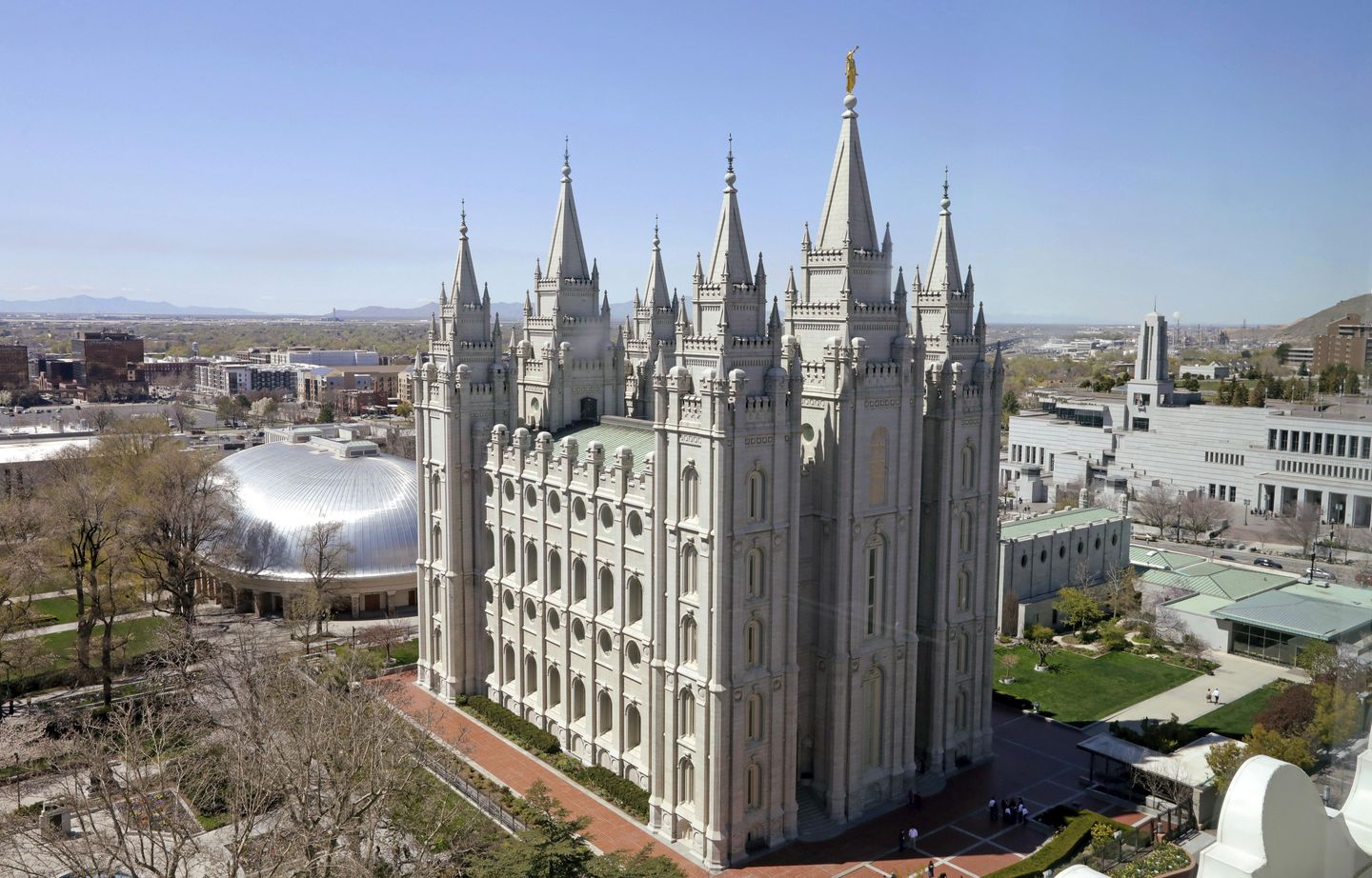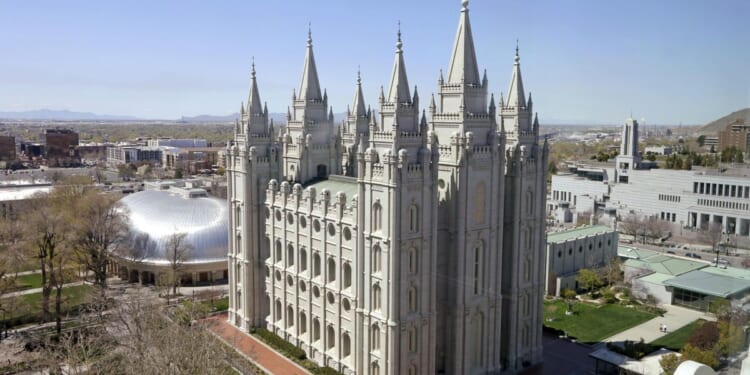
A brother of former Utah Gov. Jon Huntsman Jr. is suing the Church of Jesus Christ of Latter-day Saints for a $5 million “refund,” accusing the church of misusing his mandatory tithing donations.
James Huntsman, who grew up in a prominent LDS family before leaving the church in 2020, says his donations were used to help finance commercial ventures, not “the work of the Lord,” as a church teaching document stated.
Mr. Huntsman claims the church invested his donations to construct City Creek Mall in Salt Lake City — adjacent to LDS headquarters — and support church-owned Beneficial Life Insurance, which was ailing financially.
The church denies the allegation and says the commercial investments were made using interest earned on tithes held in reserve for future needs.
Other religious groups that filed a brief supporting the 17 million-member church’s position say having a court mandate refunds would insert the legal process into ecclesiastical issues, violating the First Amendment’s guarantee of religious free exercise.
A federal judge in California, where Mr. Huntsman now resides, dismissed the lawsuit months after it was filed in March 2021.
A three-judge appellate panel reinstated the lawsuit, but the full 9th U.S. Circuit Court of Appeals accepted the church’s request to hear the case, dismissing the reinstatement. A hearing is expected in September.
“These are important matters the Church is following carefully. The Church appreciates the 9th Circuit’s ruling setting aside the three-judge panel’s opinion and agreeing to give this case further consideration. We look forward to presenting our case to the full court,” a church spokesman said in an email.
Mr. Huntsman says the church lied when it told members that tithes are used only for “educational, missionary, building, humanitarian and welfare” programs, as the official church website states.
“All funds given to the Church by its members are considered sacred,” the church says online. “They are voluntary offerings that represent the faith and dedication of members and are used with careful oversight and discretion.”
The lawsuit states that Mr. Huntsman’s claims are bolstered by 2019 disclosures by David Nielsen, a former senior portfolio manager with the church’s Ensign Peak Advisors investment arm. Mr. Nielsen said that $2 billion from Ensign Peak had been used for the mall project and the insurance firm.
Supporters of the church’s position say that requiring refunds would destroy a historic donation system and that courts shouldn’t decide ecclesiastical matters such as tithing.
Based on biblical practices, tithing commits 10% of a member’s income to the church. In the LDS church, members tithe on an honor system and meet with a congregational leader annually to declare their giving. In the meeting, members review donations and demonstrate their obedience to the tithing command.
Mr. Huntsman’s lawsuit does not specify the number of years covered by his $5 million refund demand, but it cites statements from church leaders made between 2003 and 2012 that he “would rely upon” in making his donations.
Eleven religious groups said in a friend-of-the-court brief that judging Mr. Huntsman’s claims “would require an inquiry into reliance on religious representations — statements by church leaders and in church materials — as to how tithing funds would be used and what tithing funds are.”
The groups supporting the LDS Church’s position: Agudath Israel of America, the Christian and Missionary Alliance, the Southern Baptist Convention’s Ethics and Religious Liberty Commission, the California Southern Baptist Convention, the General Conference of Seventh-day Adventists, the United Methodist Church’s General Council on Finance and Administration, the International Church of the Foursquare Gospel; the Jewish Coalition for Religious Liberty, the Lutheran Church-Missouri Synod, the Church of Scientology and the Union of Orthodox Jewish Congregations of America.
“Subjecting a church to unwanted discovery about its internal religious decisions is always burdensome and could significantly detract from its ability to carry out its mission. And just the threat of discovery may chill churches’ internal religious expression when addressing sensitive or controversial religious issues,” the Becket Fund for Religious Liberty said in a separate friend-of-the-court brief.
Mr. Huntsman’s supporters include George Washington University law professor Robert Tuttle, who says churches don’t have blanket immunity in such cases because “churches have never received a blanket exemption from secular law.”
Mr. Tuttle’s friend-of-the-court brief states that while the Supreme Court has long “recognized that secular courts were ill-suited to decide questions of religious doctrine,” those same courts can weigh in on allegations of fraud and other civil disputes under “neutral principles of law” that would not violate religious free exercise.
Four public-interest nonprofits — the Interfaith Alliance, the Lambda Legal Defense and Education Fund, the National Women’s Law Center and the Sikh Coalition — said in a separate brief that dismissing Mr. Huntsman’s claim would damage public trust in charities and deprive those who claim they were defrauded of a way to recover losses.












